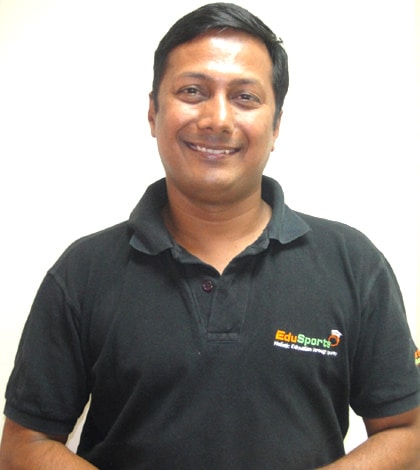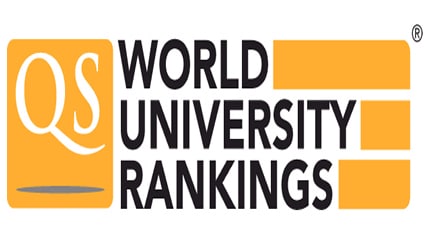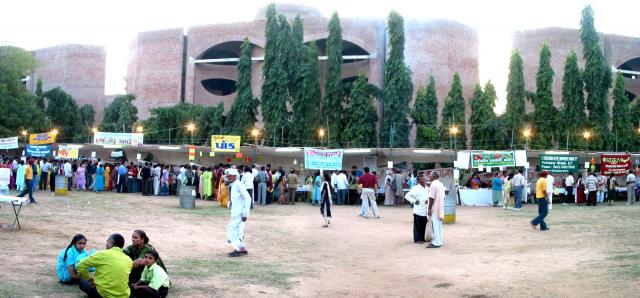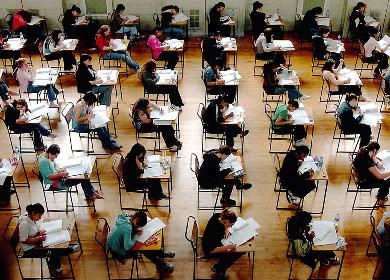“During the last five years we have been working relentlessly to ensure that there is proper enrolment of out of school children and reduction in dropout rate. To ensure availability of good education for all, as mandated by RTE Act, a proper infrastructure is a must,” says Geeta Bhukkal. In conversation with Ankush Kumar of Elets News Network (ENN).
How has your experience been as an Education Minister in Haryana?
Please shed light on the major initiatives that you have taken for improving the quality of education in the state. It is a really wonderful experience to be the Education Minister of Haryana. I am proud to be the Minister of department whose work can make so much positive difference in the life of common citizens. During the last few years, lot of expansion has taken place in the field of higher education in terms of quality and quantity. Till 2004-05 there were only three universities in the state, whereas at present there are 22 universities under the administrative ambit of Higher Education Department. The present government has started 35 new Government Colleges. The scope of the work that has been done also becomes apparent from the fact that Haryana Government has exponentially increased the budget allocation from `25,474.50 lakhs in 2004- 05 to `1,07,263.37 lakhs in the year 2013-14.
Tell us about the initiatives that you have taken for improving the state of minority education.
Many initiatives have been taken by the state government to ensure that our minorities have access to best possible education. We have started the system of post-matric scholarship and prematric scholarships. Programmes such as Jajba-e-Taleem and Dastak-e-Taleem have recently been started in the district, under which members of school management committees, NGOs and eminent citizens conducted door-to-door survey to ensure 100 percent enrolment of students in schools. In some minority districts we have opened model schools for giving more attention to the students from minority communities.
Three decades back even a 12th grade student used to get jobs very easily, but nowadays someone with college education finds it difficult to get employed. Do you think there is something wrong with our education system?
There is no doubt that there is a missmatch between the kind of education that is being provided and the exact needs of the country. For best results, the academic community should have a thorough understanding of the kind of skills that the industry needs. What is the demand of the industry? What is the demand from the MNC’s? In some parts of the country, there is high level of unemployment and at the same time the leading companies are facing shortage of well-trained manpower. We are now organising job-melas and placement cells in universities. We are also making efforts to ensure that the education that is being provided is in line with the needs of the industry.
Gurgaon is now regarded as a hub of some of the best schools and universities in the country. How do you view the educational infrastructure that has come up in the city?
In fact, I would like to begin by saying that Gurgaon is the safest city for children and women and that is one of the reasons why many people prefer to live and work in this city. The city is home to many world class IT companies. An excellent educational infrastructure has also come up in the city. This is a good opportunity for youth of Haryana who want to get quality education and find suitable jobs. In my opinion, the infrastructure for better education and employment opportunities must be expanded to other parts of the state and that is already happening.
Many educationists complain that value is missing from today’s education system. What is your opinion on that?
Skill, attitude, overall personality traits like confidence and courage, application of knowledge, and ethics are missing in the ongoing education efforts. Perhaps it is true that value education has been lost in the race of commercialization and competition. There is such a pressure on the teachers to impart certain skill-sets in their students that they might not be able to give enough time in imparting value based education. But it is also true that value education cannot be the sole responsibility of the educational institutions only. The entire society has to pitch in. Parents, NGOs, the media, and other social figures have to come forward and work together for developing a better future for our students.
Today there is a major shift happening in our education system for incorporating better IT systems for improving the quality of our education. In your opinion what are the major challenges in the path of having IT in education?
Based on the experience, a need for strong mechanism for monitoring and management needs to be set in place at all levels for ensuring optimal delivery of set targets. There is a need to develop and use appropriate e-content to enhance the comprehension level of children in the various subjects. There is also a need for pre-service as well as in service training to all the teachers in effective use of ICT in teaching and learning process. We also have to set-up smart schools at the district level to serve as demonstration models for neighbouring districts.
Large numbers of schools are yet to comply with various provisions of the RTE Act. What should be the best way forward for higher compliance?
In Haryana, there are 15,000 govern ment and more than 5000 private schools that have to comply RTE Act, 2009. The State Government and Department of School Education are working in true spirit to implement RTE Act, 2009. Haryana is the first state in the country to withdraw the school fee under RTE Act and reimburse the same. Haryana is one of the top states in the country to constitute School Management Committee, provide training to the members of School Management Committee, implement fund transfer system to strengthen the School Management Committees financially, provide free entitlements under RTE Act, enrolment drive and girls enrolment. We have reduced dropout rate with collective efforts. We also recruited the teachers to maintain teacher pupil ration. In my opinion, Haryana is among the top five states in implementing RTE Act 2009 in India. We are committed to comply with RTE Act in letter and spirit. We used to guide teachers, school management committees, private schools, villagers time to time. We are preparing a mechanism for the transparency of the compliance of RTE Act, 2009.
Today no one can deny the importance of English for getting better jobs. But at times the students from government run institutions are unable to develop proficiency in English speaking. What can be done about this?
English Labs have been set up in 31 government run colleges. These colleges are being developed as centres of excellence. The requirements of students in Haryana in regards to development of proper English speaking skills are quite unique, so we have to develop our own systems imparting this skill. We are hopeful that these English Labs will serve the propose of enabling our students to develop right kind of linguistic skills.

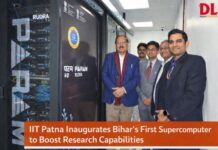







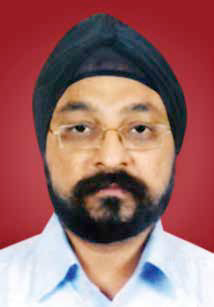 Jasvinder Singh, CEO, Words Worth ELT, part of the ACTUniv Group talks about the growth of digital labs in enhancing English language education in India
Jasvinder Singh, CEO, Words Worth ELT, part of the ACTUniv Group talks about the growth of digital labs in enhancing English language education in India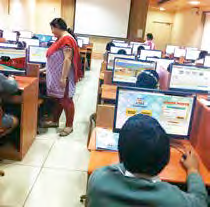 How do you compare the IT initiatives by Indian educational institutes vis-à-vis other countries?
How do you compare the IT initiatives by Indian educational institutes vis-à-vis other countries? announced a moratorium period for all education loans taken till March 31, 2009, and outstanding as of March 31, 2013. He added that the government will take over the liability for outstanding interest as on December 31, 2013, but the borrower would have to pay interest for the period after April 1, 2014. This would benefit around 900,000 student-borrowers. He added that the interest subsidy scheme was introduced in 2009-10 for education loans disbursed after April 1, 2009, while students who had borrowed prior to that date deserve some relief.
announced a moratorium period for all education loans taken till March 31, 2009, and outstanding as of March 31, 2013. He added that the government will take over the liability for outstanding interest as on December 31, 2013, but the borrower would have to pay interest for the period after April 1, 2014. This would benefit around 900,000 student-borrowers. He added that the interest subsidy scheme was introduced in 2009-10 for education loans disbursed after April 1, 2009, while students who had borrowed prior to that date deserve some relief.
